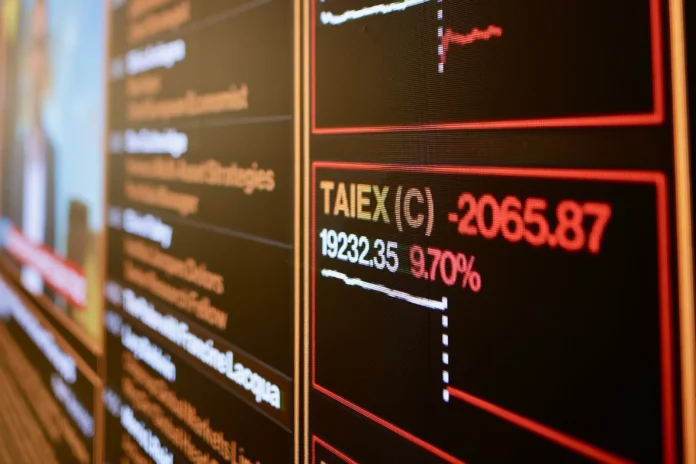Major stock indexes from Asian markets to Europe plunged on Monday as U.S. President Donald Trump showed no sign of backing away from his sweeping tariff plans while investors raised concerns about a potential global trade war.
The Dow Jones Industrial Average fell more than 400 points, or 1.7%, while the S&P 500 and Nasdaq also dropped by 1.3% and 1.5% respectively. This sharp decline was mirrored in Asian markets, with Japan’s Nikkei 225 and Hong Kong’s Hang Seng Index both falling by over 2%. European markets also saw a significant drop, with Germany’s DAX and France’s CAC 40 down by 1.9% and 1.6% respectively.
The cause of this widespread market turmoil can be traced back to President Trump’s announcement last week of imposing tariffs on steel and aluminum imports, with the intention of protecting American industries and jobs. This move has sparked fears of a global trade war, as other countries have threatened to retaliate with their own tariffs on U.S. goods.
Investors are worried that these tariffs could lead to higher prices for consumers, disrupt global supply chains, and ultimately hurt economic growth. The uncertainty surrounding the potential impact of these tariffs has caused a sell-off in stocks, as investors seek safer assets such as bonds.
The impact of these tariffs is not limited to the U.S. and its trading partners. The global interconnectedness of the economy means that any major policy changes in one country can have ripple effects around the world. This is evident in the sharp decline of stock indexes in Asia and Europe, as these regions are major trading partners with the U.S.
In addition to the tariffs, President Trump’s recent decision to impose sanctions on China for intellectual property theft has also added to the market volatility. China has responded by threatening to impose tariffs on U.S. goods, further escalating the trade tensions between the two countries.
Despite the market turmoil, some experts believe that this could be a temporary setback and that the long-term impact of these tariffs may not be as severe as initially feared. They argue that the U.S. economy is strong and can withstand these trade tensions, and that the tariffs may even lead to a renegotiation of trade deals that could benefit the U.S. in the long run.
Furthermore, the recent tax cuts and strong corporate earnings have boosted investor confidence and could help cushion the impact of these tariffs. The U.S. economy is also expected to continue its steady growth, which could help offset any negative effects of the tariffs.
It is important for investors to remain calm and not make any hasty decisions based on short-term market fluctuations. The stock market is known for its volatility, and it is not uncommon for it to experience sharp declines followed by a quick recovery.
In fact, some investors see this as an opportunity to buy stocks at a lower price, as they believe that the market will eventually bounce back. This is a reminder that investing in the stock market requires a long-term perspective and a diversified portfolio to weather any market storms.
In conclusion, while the recent market decline may be concerning, it is important to keep in mind that it is a result of the uncertainty surrounding the tariffs and their potential impact on the global economy. It is crucial for investors to stay informed and not make any rash decisions, as the long-term effects of these tariffs are still unknown. With a strong economy and positive outlook, the U.S. is well-equipped to handle these trade tensions and emerge even stronger in the future.


